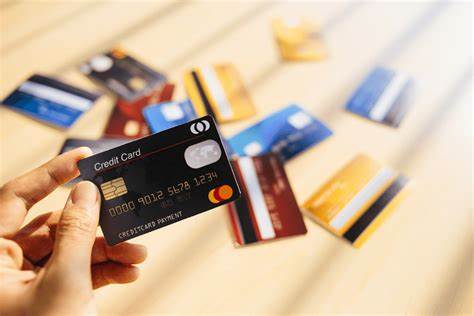If you pay off with a high-interest credit card, you might consider transferring money. After all, this will save you financial costs and help you pay off debt faster.
 One of the biggest ironies of credit building is that you need credit to build credit. According to a report released by the Consumer Financial Protection Agency (CFPB), more than 26 million Americans are “invisible to credit” and more than 19 million are “unchangeable”.
One of the biggest ironies of credit building is that you need credit to build credit. According to a report released by the Consumer Financial Protection Agency (CFPB), more than 26 million Americans are “invisible to credit” and more than 19 million are “unchangeable”.
What does "thin file" mean?
Skinny is not always a good thing. When there is not enough information to report to TransUnion, Equifax and Experian to generate a credit score, the credit bureau will report that you have a "thin file". Consumers with thin files can be divided into two basic groups. The first group is consumers without credit reports (no credit card, insurance, loans, etc.). The second group includes consumers who do not have enough credit history to generate credit reports or have not reported information recently.
If you have a "thin file", create a credit tip
Although it is difficult to build credit with thin documents, this is not impossible. Here are some tips for getting started.
Credit builder loans allow consumers to establish credit for themselves and banks or credit unions that provide loans at low risk. These loans are usually small (up to $1,000) and can be in several different ways. Most credit construction loans require the borrower to repay the loan in a timely manner (usually less than one year). After the loan is fully paid, the borrower can withdraw the money.
Quasi-credit card
A secured credit card is another way for an individual in a credit file to establish credit. These products are provided by banks and credit unions. In order to minimize the risk of banks and credit unions, consumers must first deposit funds into their accounts to ensure that the funds they borrow can be fully repaid. Just like a credit builder loan, your activity will also be reported to the credit bureau.
Find a co-signer
When you first build credit, one of the easiest ways to build credit is to build a loan with a co-signer who already has good credit. Co-signers will only agree to pay all the bills you are unable to pay, which reduces the risk to the bank. Once the bank approves your loan, you can start repaying the loan and start building your FICO score.
For credit cards, you can become an authorized user under someone else's credit card account. Then, as long as the bill continues to be paid on time, your credit score will continue to grow. It looks very simple, right? Now, you only need to find someone who is willing to put their credit online for you!
While more than 90% of top US banks use FICO credit scores when checking consumer credit records, traditional credit scores often fail to determine an individual's true creditworthiness.
That's why startups like ecredable and modernlend are evaluating other data metrics to get real credit. By evaluating bill payment information (such as rent, utilities, insurance, cable TV, mobile phones, etc.), educational history, and other metrics, start-ups are now working with financial institutions to provide credit channels to unreputable but reputable borrowers.



